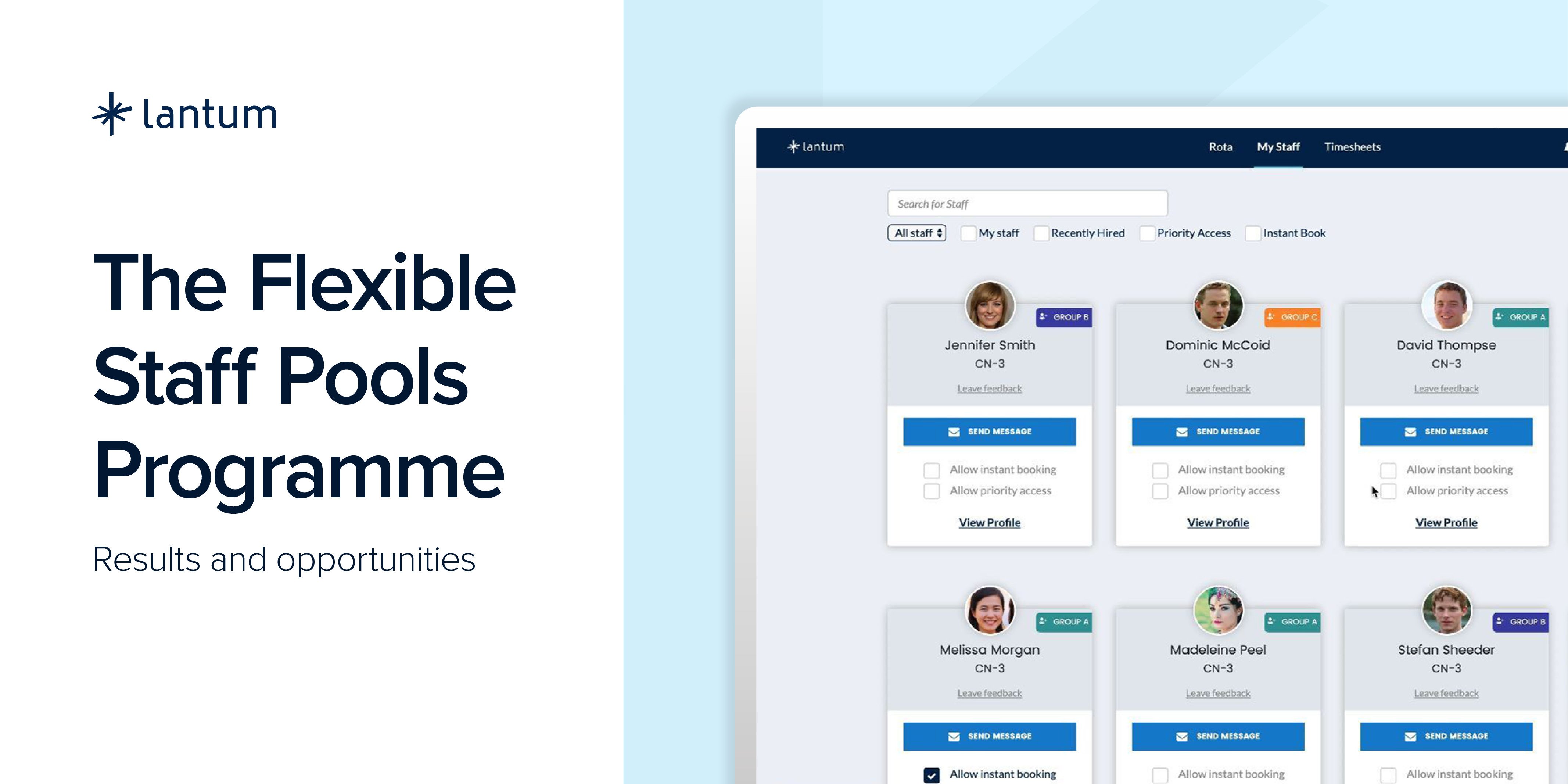The Flexible Staff Pools Programme: Results and opportunities
This article is part of our recent report on the effectiveness of the Flexible Staff Pools Programme over the last two years. Download the full report here.
How do ICSs build future-proof workforces that support system resilience, flexible working, and community-specific health challenges?
That’s the question the Flexible Staff Pools Programme sought to answer when it was launched in 2021. With £120k in funding provided to each system as part of the Primary Care System Development, the programme was designed to increase primary care capacity, lower costs, reduce admin burden for staff, and retain locum staff with more benefits.
In the last two years, Lantum has worked with 18 ICB partners to make this vision a reality. By leveraging relationships with local practices and PCNs, we’ve deployed multidisciplinary staff across primary care, including GPs, nurses, and ARRS roles. In partnership with ICBs across England, we’ve seen:
- Over 3,290 staff joining flexible pools on Lantum
- 965,280 clinical hours worked across more than 241,000 sessions
- Forecast savings of over £3,600,000 in agency spend across Lantum’s NHS sites in two years
- Reduced administrative time spent managing staff rotas by up to two thirds
- More than 3,000 staff across Lantum’s ICS sites have applied for more than one shift, building long-term relationships
- 1,168 GPs, 574 nurses and 1,550 additional roles onboarded to increase capacity and resilience
Of course, change rarely comes without challenges.
Integrating flexible staff pools into ICSs requires deliberate and focused leadership. While the report ahead lays out all of Lantum’s learnings from the last two years, there are key themes that leaders need to be aware of when implementing flexible staff pools.
- Flexible pools should align with ICS strategy and be available on one platform system-wide, rather than through fragmented providers across localised PCNs or specific staff types.
- ICSs should deploy clear, consistent messaging and training for practice managers.
- E-rostering tools and remote consultations are key ways ICSs can tackle a lack of staff in underserved rural communities.
- Onboarding a multidisciplinary workforce is most effective when partnering with local champions, including different staffing models, and embedding rota tools at a PCN level to support ARRS use.
Workforce planning is top of mind across all levels of the NHS right now. With a broader focus on system-wide resilience and retention, flexible staff pools are just one part of Lantum’s system-wide solution at the ICS level.
Greater flexibility in funding means ICSs must consider how flexible working can support retention, help plan for times of high pressure, save costs, and ultimately have an impact on staff and patient experience across the system.
Learn more about how Lantum supports ICSs across England.
Download the full report below.


